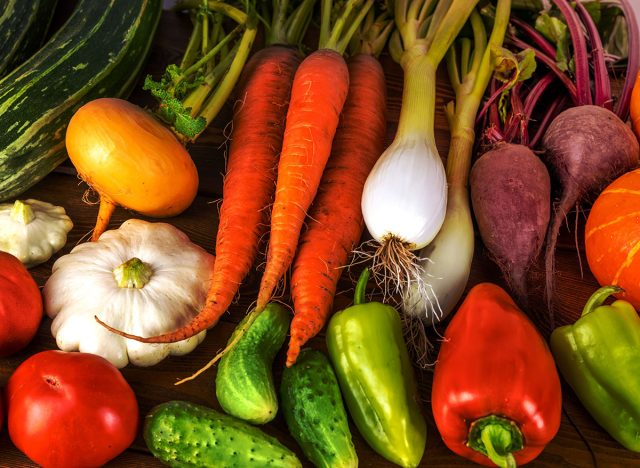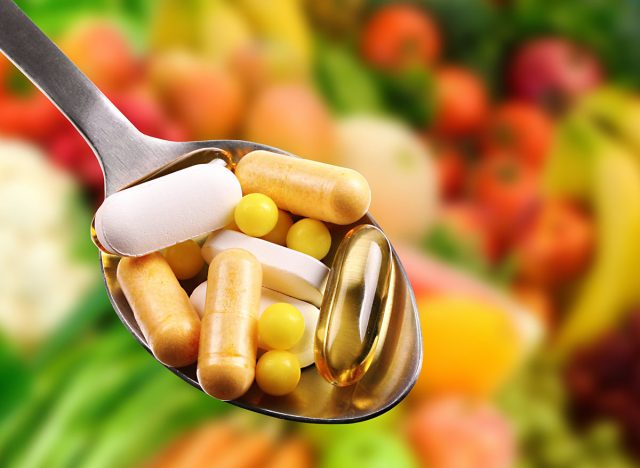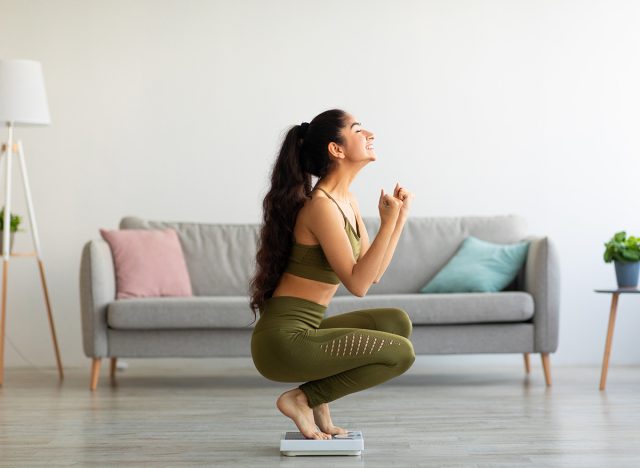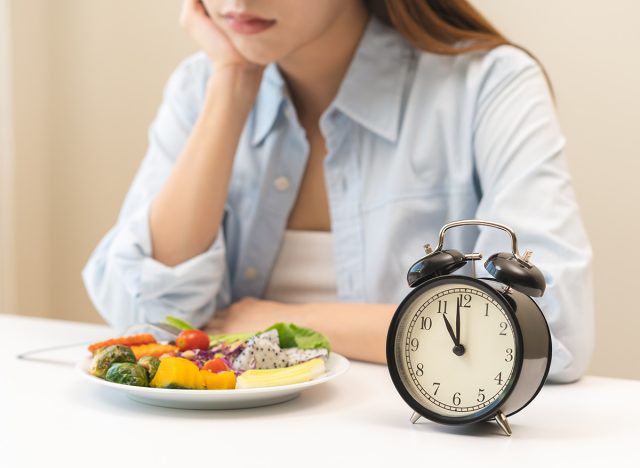7 Ways to Reduce Inflammation in Your Body

Chronic inflammation is linked to a host of illnesses and negative health outcomes. "Inflammation that's not specifically from an infection or injury often doesn't manifest into a lot of clear symptoms," Ketan Amin, MD, tells Novant Health.
"It just kind of smolders in the background. [People] may not even realize they have an inflammatory condition because it's a subtle change that occurs over weeks, months, and even years. So they're just dealing with the symptoms, like fatigue, every day — and, day after day, it gets a little bit worse." Thankfully inflammation can be reversed or prevented—here's how.
Nutritious Food

Eating the right foods—for example, the Mediterranean Diet—can make a big impact on inflammation, experts say.
"Making good choices in our diet to include fresh vegetables and fruits as well as reducing refined sugar intake can make a big difference," Varinthrej Pitis, MD, tells Scripps Health. "An anti-inflammatory diet also limits foods that promote inflammation," says cardiologist James Gray, MD.
RELATED: 15 Proven Ways to Sculpt Your Dream Body by An Expert Coach
Anti-Inflammatory Supplements

Certain supplements may help fight inflammation. "Turmeric has been known for its anti-inflammatory effects for centuries — I take it every day," Dr. Amin says.
"Garlic is another good one. And capsaicin, from cayenne, can be used on joints externally to reduce inflammation and pain."
Stress Management

Stress management, for example, meditation, has been shown to help lower or prevent inflammation. "We may not be able to change many of the stressful situations we encounter in life, but we can change our response and perception by learning to manage stress better," says Dr. Gray.
"It's important to remember also that measures to reduce inflammation pay off over time with improved health and reduced risk of chronic disease."
Lose Weight

Inflammation increases with weight gain, experts say. "As our weight increases, so does the amount of visceral fat in our body," endocrinologist Dr. Karla Saint Andre tells Houston Methodist On Health.
"These cells are biologically active, secreting hormones and other substances that can put the body into an inflammatory state. This type of fat can also deposit inside and between organs — the pancreas, liver, intestines, and more. When this happens, the inflammation these cells trigger can cause dysfunction of these organs, contributing to issues like insulin deficiency and, eventually, type 2 diabetes."
RELATED: 4 Signs You Aren't Eating Enough Protein
Don't Smoke

Smoking and vaping cause inflammation throughout the whole body. "The general perception among the public is that e-cigs are 'safer' than cigarettes," Peter Shields, MD, tells Ohio State University.
"The reality is the industry is changing so fast — and with minimal regulation — that usage is outpacing the rate of our scientific understanding. It's becoming a public health crisis we should all take very seriously from a general pulmonary health, cancer risk and addiction perspective. E-cigs may be safer than smoking, but that is not the same as safe, and we need to know how unsafe they are."
Intermittent Fasting

Intermittent fasting may prove a powerful tool for reducing inflammation. "Some research suggests that intermittent fasting may be more beneficial than other diets for reducing inflammation and improving conditions associated with inflammation," Manpreet Mundi, M.D, tells the Mayo Clinic. "Such as Alzheimer's disease, arthritis, asthma, multiple sclerosis, and stroke."
RELATED: Get Lean Muscle Tone in 30 Days With This Workout
Healthy Habits

Focus on overall health and good habits to prevent long-term inflammation. "When you don't eat healthy, don't get enough exercise, or have too much stress, the body responds by triggering inflammation," says Dr. Pitis.
"Chronic inflammation can have damaging consequences over the long term. So the food you eat, the quality of sleep you get and how much you exercise, they all really matter when it comes to reducing inflammation."
💪🔥Body Booster: A healthy diet and regular exercise can help prevent inflammation.




